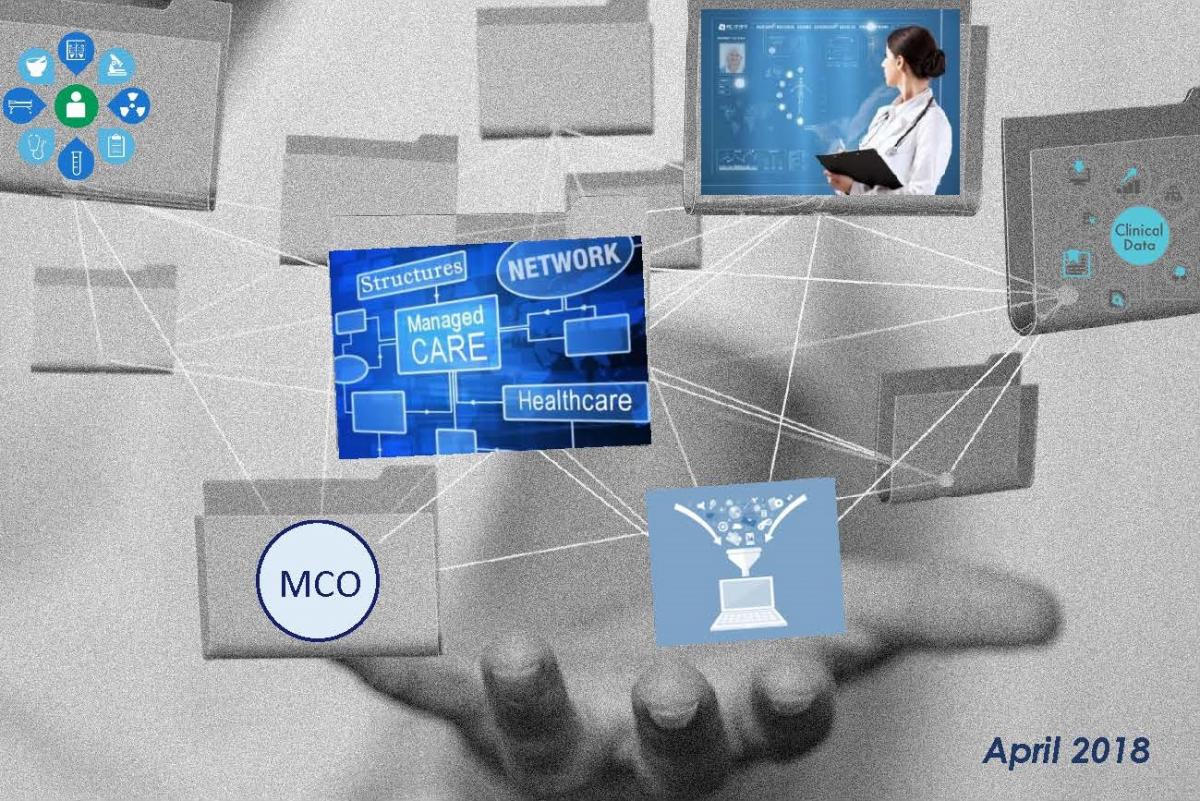The Opioid Crisis Among Virginia Medicaid Beneficiaries
Virginia is experiencing an opioid crisis of overwhelming proportions. At least two Virginians die from prescription opioid and heroin overdoses every day. The Virginia Department of Health reported a 38% increase in deaths from prescription opioid and heroin overdoses between 2012 and 2014.1 Opioid abuse is increasing in Virginia due to high levels of prescription opioid drug supply, lack of understanding of the issue among the public and providers, and limited availability of treatment. Virginia’s Medicaid program spent $26 million on opioid use and misuse in 2013, with $10 million of this spending occurring in Southwest Virginia. More broadly, at least 40,000 adults in Virginia’s Medicaid program have a substance abuse disorder, and over 50% of Medicaid members with serious mental illness also have a substance use disorder.
Click below to read more.
Developing a Prototype Opioid Surveillance System at a 2-Day Virginia Hackathon
Developing a Prototype Opioid Surveillance System at a 2-Day Virginia Hackathon
Catherine Ordun, Jessica Bonnie, Jung Byun*, Daewoo Chong, Richard Latham and Joshua Wei
Objective
A team of data scientists from Booz Allen competed in an opioid hackathon and developed a prototype opioid surveillance system using data science methods. This presentation intends to 1) describe the positives and negatives of their data science approach, 2) demo the prototype applications built, and 3) discuss next steps for local implementation of a similar capability.
Complementary and Integrative Health (CIH) Interventions for Preventing or Reducing Opioid Use
The Comparative Effectiveness of Selected Complementary and Integrative Health (CIH) Interventions for Preventing or Reducing Opioid Use in Adults with Chronic Neck, Low Back, and Large Joint Pain
Over the past two decades, there has been a dramatic increase in opioid related overdose deaths, dependence, and misuse. As a result, there is intense interest in non-opioid alternatives for treating chronic pain. Select Complementary and Integrative Health (CIH) interventions may be a reasonable non-opioid treatment option if they can improve pain at a magnitude comparable to opioids, but without serious side effects. Whether CIH interventions can reduce chronic opioid use is of great interest in the fight against the opioid epidemic.
The Return on Investment of Patient-Generated Health Data & Remote Patient Monitoring
Healthcare stakeholders are seeking new strategies to improve access to care, address disease management, and spur treatment innovation as a growing number of patients require higher quality, more complex care at lower costs. At a time when the number of people with chronic conditions continues to rise at a staggering rate, providers must manage more patients with the same number of resources, or less, and deploy technology that improves efficiency and effectiveness.
The healthcare industry is deeply vested in identifying new ways to improve the overall health and satisfaction of patients. As a result, provider organizations are adopting remote patient monitoring (RPM) services – inclusive of data from home health devices – as a new standard of care.
This report from eHealth Initiative (eHI) in partnership with Validic analyzes the driving market trends and subsequent barriers for the adoption of patient-generated health data (PGHD) as part of remote care programs. The report delves deep into the financial, operational, and clinical returns on investing in such initiatives – offering perspectives from providers, technologists, regulators, and even a patient enrolled in such a program.
Prior Authorization and Utilization Management Reform Principles
Recognizing the investment that the health insurance industry will continue to place in these programs, a multi-stakeholder group representing patients, physicians, hospitals and pharmacists has developed the following principles on utilization management programs to reduce the negative impact they have on patients, providers and the health care system. This group strongly urges health plans, benefit managers and any other party conducting utilization management (“utilization review entities”), as well as accreditation organizations, to apply the following principles to utilization management programs for both medical and pharmacy benefits. They believe adherence to these principles will ensure that patients have timely access to treatment and reduce administrative costs to the health care system.
Issue Brief: Sharing Behavioral Health Information Amid the Opiod Crisis
 As the old model of patient care silos—where behavioral health providers treat patients separately from the rest of the healthcare system—breaks down, participants from across healthcare are attempting to access patient-specific behavioral health data to create integrated care models. Primary care providers are taking on a greater role in treating those with addictions, as are new players (teletherapy companies), and traditional entities (providers, health plans, pharmaceutical companies). The opioid epidemic has increased the need for behavioral health services and for healthcare stakeholders to seek a more active role in managing behavioral health.
As the old model of patient care silos—where behavioral health providers treat patients separately from the rest of the healthcare system—breaks down, participants from across healthcare are attempting to access patient-specific behavioral health data to create integrated care models. Primary care providers are taking on a greater role in treating those with addictions, as are new players (teletherapy companies), and traditional entities (providers, health plans, pharmaceutical companies). The opioid epidemic has increased the need for behavioral health services and for healthcare stakeholders to seek a more active role in managing behavioral health.
On May 1, eHealth Initiative Foundation and Manatt, Phelps & Phillips hosted an executive advisory board on the role of health information technology in protecting and sharing behavioral health data amid the opioid crisis. The roundtable meeting, Sharing Behavioral Health Information in Light of the Opioid Epidemic, explored the role of privacy and security in the context of the crisis. Much of the discussion focused on the impact of policies and regulations that hinder the sharing of sensitive patient data and affects health outcomes. Experts and industry leaders from Walgreens, Surescripts, CRISP, OhioHealth, Senator Shelley Moore Capito’s office, and the Substance Abuse and Mental Health Services Administration (SAMHSA) provided information on the policies and technologies that affect the use of behavioral health information in patient care and discussed ways to address challenges.
This brief addresses the role of electronic prescribing of controlled substances (EPCS), regulatory and legislative obstacles, including 42 Code of Federal Regulations Part 2 (42 CFR Part 2), the Health Insurance Portability and Accountability Act (HIPAA), and the Prescription Drug Monitoring Program (PDMP), and aims to provide potential solutions for tackling the opioid crisis.
America's Opioid Crisis - Bloomberg Law Insights
3/30/18 article by Richard Hartunian, Jacqueline Wolff, Joel Ario, Jocelyn Guyer, Sandy Robinson, Andrew Case, and Robert Rebitzer
The nation's opioid epidemic claimed more than 42,000 lives in 2016 and experts fear it will get worse before it gets better. What can be done to combat this multi-faceted threat to public health? This article looks at how the crisis began, reviews how four sectors have responded, and considers what might bring the crisis under control.
Changing the Course of the Opioid Epidemic: The Power and Promise of Proven Technology
Technology available today can play a critical role in helping healthcare professionals combat the opioid epidemic and reduce the devastating human and economic impacts of the nationwide health emergency. In a new paper, “Changing the Course of the Opioid Epidemic: The Power and Promise of Proven Technology,” Paul Uhrig, Surescripts Chief Administrative, Legal and Privacy Officer, outlines how technology can address two challenges presented by the opioid epidemic: drug diversion or illegal use of prescription opioids and clinical appropriateness of opioids for patients with a true therapeutic need.
Press Release: Proven Technology Can Help Healthcare Professionals Fight the Opioid Epidemic
Technology available today can play a critical role in helping healthcare professionals combat the opioid epidemic and reduce the devastating human and economic impacts of the nationwide health emergency. In a new paper, “Changing the Course of the Opioid Epidemic: The Power and Promise of Proven Technology,” Paul Uhrig, Surescripts Chief Administrative, Legal and Privacy Officer, outlines how technology can address two challenges presented by the opioid epidemic: drug diversion or illegal use of prescription opioids and clinical appropriateness of opioids for patients with a true therapeutic need.
Report: Improving Care and Lowering Costs: The Use of Clinical Data by Medicaid Managed Care Organizations
eHealth Initiative conducted six interviews with executives from leading Medicaid Managed Care Organizations to better gauge MCOs’ progress in defining and implementing their clinical data strategies. Executives were asked about their organization’s main sources of clinical data; progress related to collecting, storing, and sharing clinical data; and about leveraging clinical data for various processes. Interviews revealed the ways clinical data is used in case management systems and value-based contracts with states and provider networks. Read the full report.


